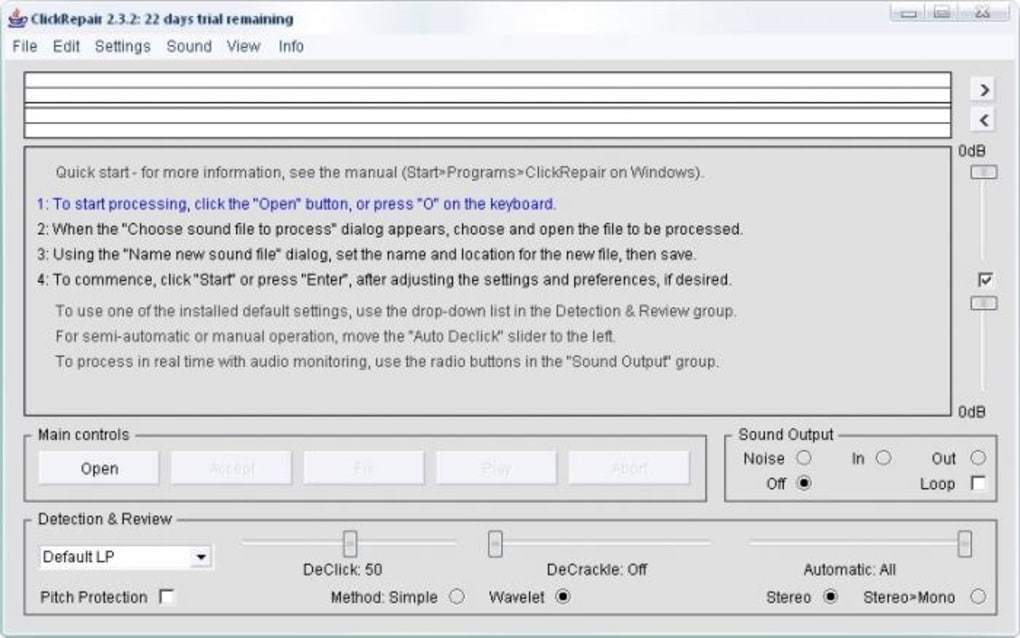

It is very easy to create a test scenario where you run a segment through the software, invert it, do not hear any music but then when you actually do the processing, the music is very obviously effected, sometimes dramatically. Even though most of the programs have an "inversion" function, I'm not convinced they don't touch the music, however small the effect may be. What's your opinion on recording in DSD and converting to PCM for editing using something like DSD Master or Saracon? I think the DA3000 produces better results this way. The downside is that it takes a (very) long time to do this.
CLICKREPAIR LICENSE GET MANUAL
The effect is very small and for a noisy record the I think trade off in reduced surface noise is worth it.īased off the above, it seems the best way is using the manual interpolate function in RX to remove anything audible which interferes with the music. Second result was that I feel that both algorithms have the effect of closing in the sound a bit. RX5 is too aggressive, even with the lowest setting I think it's making way way way too many fixes to things which are not audible. First result was that I still feel that the current version of ClickRepair (3.9.5) is better then the current version of RX (RX5). I built a DIY ultrasonic (Elma P60H + vinyl stack) machine last year and that was one of the best things to happen to my vinyl replay.Īnyhow, prompted by this thread, I did a some listening tests over the past few days. Yes I completely agree getting the record as clean as possible before starting is a must.


 0 kommentar(er)
0 kommentar(er)
